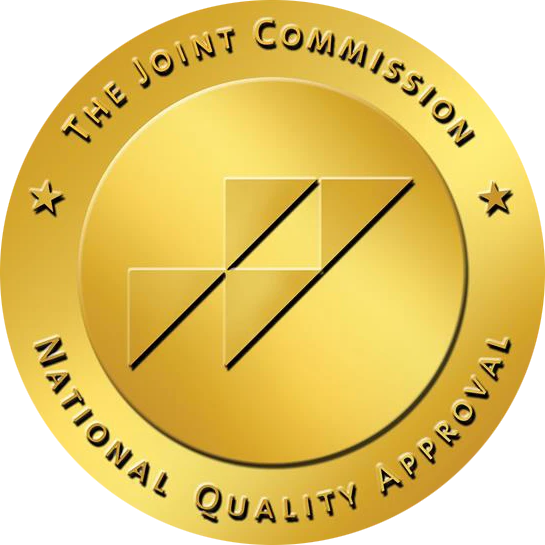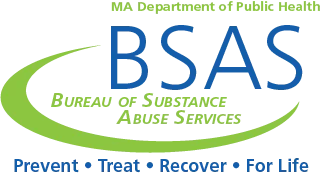Drug detox is the first step when substance use has created physical dependence. This process focuses on helping the body safely clear drugs while managing withdrawal symptoms under medical supervision. At Retreat of Boston, drug detox is not treated as a standalone service. It is the beginning of a structured treatment process that continues directly into residential care. If you are experiencing withdrawal symptoms or are concerned about stopping safely, speaking with admissions right away can help clarify next steps. Detox timing matters, and support is available.
What is Drug Detox?
Drug detox is a medically supervised process that helps the body stabilize after ongoing drug use. When drugs are removed, the nervous system and organs can react unpredictably. Symptoms may range from discomfort to serious medical risk depending on the substance, length of use, and overall health.
Medical supervision during drug detox allows clinicians to monitor symptoms, respond to changes, and reduce risk. This includes ongoing assessment, medication when appropriate, and 24-hour observation. Detox is not a treatment by itself. It prepares the body and mind for continued care.
Types of Drug Detox We Offer
Drug detox in Massachusetts at Retreat of Boston includes several focused detox paths based on the substances involved. Each detox option follows the same medically supervised structure while addressing the specific withdrawal risks tied to different drugs. These detox paths are part of one comprehensive drug detox program and support safe stabilization before continued treatment.
Fentanyl Detox
Fentanyl detox focuses on stabilizing the body after exposure to a highly potent opioid. Withdrawal symptoms can escalate quickly and require close medical monitoring. Supervised detox helps manage discomfort while reducing medical risk during early stabilization.
Cocaine Detox
Cocaine detox addresses the physical and emotional effects that follow stimulant use. While withdrawal is not typically life-threatening, symptoms such as fatigue, low mood, and agitation can be difficult to manage alone. Medical oversight provides structure and support during this phase.
Heroin Detox
Heroin detox supports individuals experiencing opioid withdrawal after repeated use. Symptoms often include intense cravings and physical distress. Medical supervision allows symptoms to be managed safely while the body begins to stabilize.
Meth Detox
Meth detox focuses on calming the nervous system after prolonged stimulant use. Withdrawal may involve exhaustion, sleep disruption, and mood changes. A structured detox environment helps monitor symptoms and support stabilization.
Opiate Detox
Opiate detox is designed for individuals dependent on opioid medications or illicit opioids. Withdrawal can be physically taxing and unpredictable. Medical supervision helps reduce discomfort and supports a safer detox process.
Prescription Drug Detox
Prescription drug detox addresses dependence on medications such as pain relievers, sleep aids, or anxiety medications. Withdrawal symptoms vary based on the substance and length of use. Medical oversight helps ensure detox is managed safely and appropriately.
Xanax Detox
Xanax detox requires careful medical supervision due to the risk of severe withdrawal symptoms. Stopping suddenly can lead to serious complications, including seizures. A monitored detox setting supports gradual stabilization and improves safety.
After detox, the next step is continued care. Detox helps stabilize the body but does not address the underlying patterns tied to substance use. Admissions staff can help determine the appropriate next phase of treatment and coordinate a smooth transition into residential care. If you are ready to take the next step or need help understanding your options, speaking with admissions can provide clarity and immediate support.

What to Expect During Drug Detox
Drug detox in Boston begins with a structured intake process. During intake, clinical staff gather information about substance use history, current symptoms, medical conditions, and prior treatment experiences. This assessment helps determine the safest approach to detox and allows the medical team to anticipate withdrawal risks before symptoms intensify.
Medical monitoring is continuous throughout the detox process. Vital signs are checked regularly, and physical and mental status are closely observed. This level of supervision allows staff to identify changes early and respond quickly if symptoms increase or complications arise. Monitoring is especially important during the first days of detox when withdrawal can be unpredictable.
Withdrawal management focuses on reducing discomfort while maintaining safety. When appropriate, medications may be used to ease symptoms and support stabilization. The goal is not to rush detox but to allow the body to adjust in a controlled and supported setting. Clinical staff remain available to address symptoms as they change.
Safety is the priority during drug detox. Detox takes place in a structured environment where individuals are not managing withdrawal alone. Medical oversight helps reduce the risk of serious complications and provides reassurance during a physically and emotionally demanding period. This level of care helps prepare individuals for the next phase of treatment after detox.
What Happens After Drug Detox?
After detox, the next step is continued care. Once the body has stabilized, the focus shifts from managing withdrawal to supporting daily structure and clinical engagement. This phase helps maintain progress made during detox and reduces the risk of returning to use during early recovery.
For most individuals, continued care takes place in residential treatment. After detox, a residential setting provides consistent daily support, therapeutic services, and clinical oversight. This environment helps individuals stay grounded as they adjust to life without substances.
Planning for residential care begins during detox. Admissions and clinical staff coordinate the transition so treatment continues without interruption. Moving directly into the next phase helps provide stability during a period when physical and emotional vulnerability remain.

Who Drug Detox is For
Drug detox is appropriate for individuals who experience withdrawal symptoms when stopping substance use. These symptoms may appear quickly or increase over time, making it difficult to stop safely without support. Detox is also recommended for people who have attempted to quit on their own and were unable to manage symptoms or remain stable.
When substance use becomes physically ingrained, the body begins to rely on the drug to function normally. In these cases, detox may be necessary before treatment can begin. This often includes individuals who feel ill when not using, experience intense cravings, or use substances to avoid withdrawal symptoms rather than to feel high.
Drug detox can also be important for people with a history of severe withdrawal, medical complications, or prolonged use. A supervised detox setting allows symptoms to be monitored and addressed as they change. This level of care reduces risk and helps create a safer starting point for continued treatment.
If stopping feels overwhelming or unsafe, detox provides a controlled environment where stabilization can occur before the next phase of care begins.
Speak with Admissions About Drug Detox Today
Speaking with admissions is often the safest way to begin drug detox. A confidential conversation allows you to discuss current symptoms, substance use, and immediate concerns with a team that understands withdrawal risk. Admissions staff can explain how detox works, assess whether medical supervision is needed, and help determine next steps without pressure.
Retreat of Boston offers medically supervised detox with clear planning for continued care after stabilization. Admissions coordinates detox timing and the transition into residential treatment so care continues without interruption. If stopping feels unsafe or overwhelming, reaching out now to our admissions team can help bring clarity and support when timing matters.




